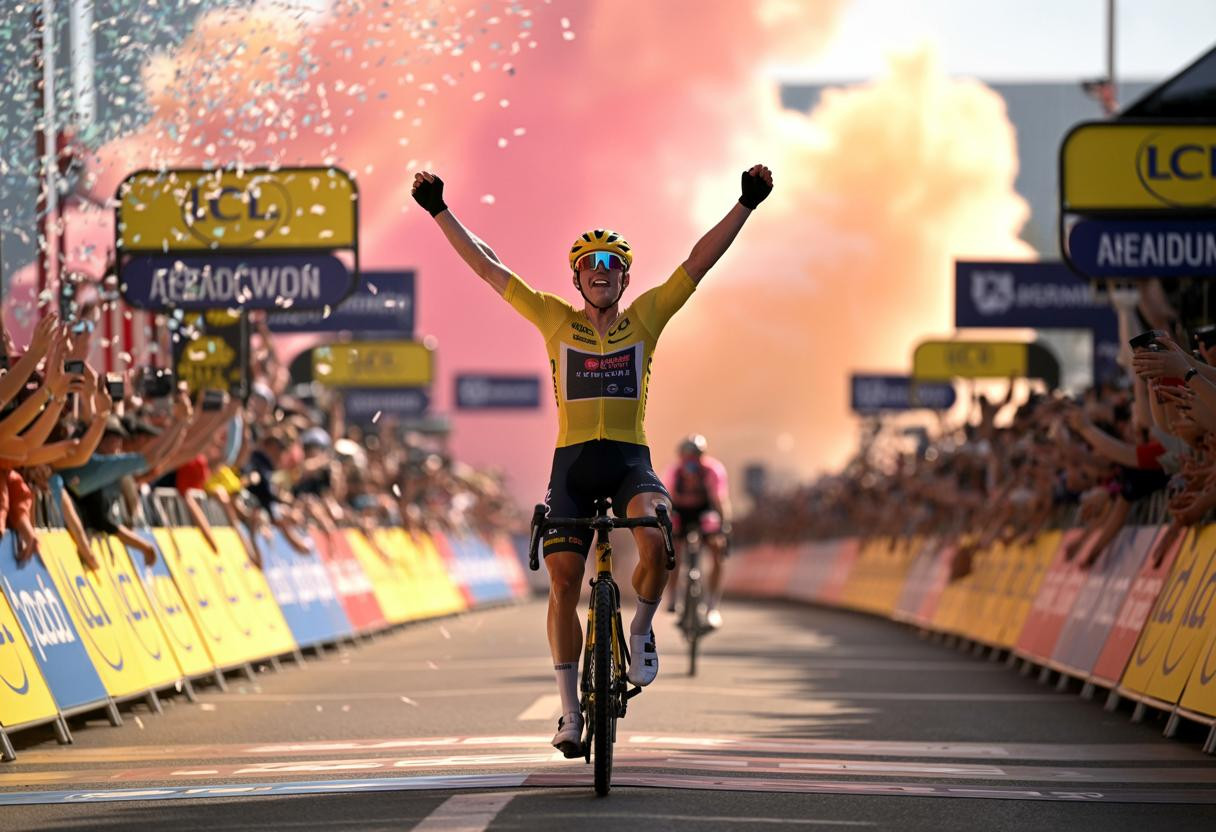Simon Yates’s victory at the 2025 Giro d’Italia proves that consistency trumps flashiness in Grand Tour racing – he became champion without winning a single stage, joining an elite group of tactically brilliant riders who understand that the yellow jersey matters more than individual glory.
The race that redefined cycling strategy
The 108th edition of Italy’s premier cycling event concluded with one of the most surprising outcomes in recent memory. Yates finished 3:56 ahead of 21-year-old Isaac del Toro, marking Mexico’s highest-ever Giro placement and showcasing how modern Grand Tours reward strategic thinking over pure power.
What made this Giro particularly fascinating was the absence of pre-race favorites Primož Roglič and Juan Ayuso, who both withdrew due to injuries. This created a power vacuum that allowed tactical masterminds like Yates to flourish, similar to how championship battles and strategic racing decisions can completely reshape expected outcomes when favorites stumble.
Three game-changing insights from this historic race
Stage wins became secondary to time management
Yates’s approach mirrored Alberto Contador’s 2015 strategy – never winning a stage but never losing significant time. While his teammate Olav Kooij claimed sprint victories on Stages 12 and 21, Yates focused on minimizing losses during mountain stages and capitalizing on rivals’ tactical errors.
This represents a fundamental shift in Grand Tour racing psychology. Instead of gambling everything on stage wins, experienced riders like Yates understand that strategic adaptations by veteran athletes often prove more valuable than raw ambition.
Youth movements are reshaping cycling’s hierarchy
Isaac del Toro’s second-place finish wasn’t just impressive – it was revolutionary. At 21 years old, competing in only his second Grand Tour, he demonstrated tactical maturity that typically takes years to develop. His 3:56 deficit actually represented missed opportunities rather than limitations, suggesting even greater potential ahead.
UAE Team Emirates-XRG’s strategy of pairing del Toro with veteran support proved brilliant, creating a template other teams will likely copy for developing young talent.
Route innovation creates unexpected advantages
The 2025 Giro’s inclusion of Albania and technical challenges like Stage 9’s gravel roads disrupted traditional racing patterns. These innovations favor adaptable riders over specialists, explaining why INEOS Grenadiers underperformed despite having Egan Bernal finish only 7th overall.
What this means for cycling’s future landscape
The physical demands showcased in brutal mountain stages like the Stelvio Pass sequence (Stages 16-17) and the decisive Stage 20 climb reveal how physical demands of elite competition continue separating true champions from talented competitors.
Yates’s move to Team Visma-Lease a Bike proved strategically brilliant, demonstrating how career transitions can unlock hidden potential. His victory provides a roadmap for other experienced riders seeking Grand Tour breakthrough moments.
Immediate tactical lessons for cycling enthusiasts
Consistency beats individual brilliance
Focus on minimizing bad days rather than maximizing great ones. Yates lost minimal time during his weakest moments while staying within striking distance during others’ strongest performances.
Team dynamics matter more than individual talent
Notice how Kooij’s sprint victories supported Yates’s overall strategy. Modern Grand Tours reward teams that coordinate individual strengths toward collective goals.
Route knowledge creates competitive advantages
Understanding technical challenges like gravel sections or specific mountain gradients allows tactical preparation that pure fitness cannot overcome.
Why this changes everything we know about winning
Yates’s triumph proves that tactical intelligence has become cycling’s most valuable currency. In an era where physical capabilities have plateaued among elite riders, the ability to read races, manage energy, and exploit opponents’ mistakes separates champions from also-rans. This Giro will be remembered as the moment cycling fully embraced strategic sophistication over raw power.
